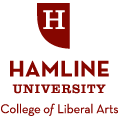Date of Award
Spring 2014
Degree Type
Honors Project
School
College of Liberal Arts
First Advisor
Suda Ishida
Abstract
The role of media in any society is determined by the level of press freedom in that society. Freedom of the press can be best seen in the relationship between the government and mass media institutions. Since the end of the Cuban Revolution in 1959, the Cuban regime has been criticized by organizations all over the world for allegedly limiting press freedom in the island. Despite the wide controversy, little is known about the state of freedom of the press in Cuban media in the last few years. This study set out to investigate the level of press freedom enjoyed in Cuba from the year 2002 to 2013 as well as any changes in policy in regards to this freedom in the same timeline. Through interviews with Cuban exiles living in the United States, it was concluded that there is a very limited amount of press freedom granted to mass media institutions. Additionally, it was concluded that no fundamental changes have been made to grant a higher level of press freedom.
Recommended Citation
Anaya, Karen E., "Freedom of the Press in Cuba from 2002-2013: Voices of Post-Revolutionary Exiled Cuban Journalists, Writers and Dissidents in the U.S." (2014). Departmental Honors Projects. 23.
https://digitalcommons.hamline.edu/dhp/23
dc_type
text
dc_publisher
DigitalCommons@Hamline
dc_format
application/pdf
dc_source
Departmental Honors Project
Included in
Journalism Studies Commons, Mass Communication Commons, Social Influence and Political Communication Commons, Social Media Commons

